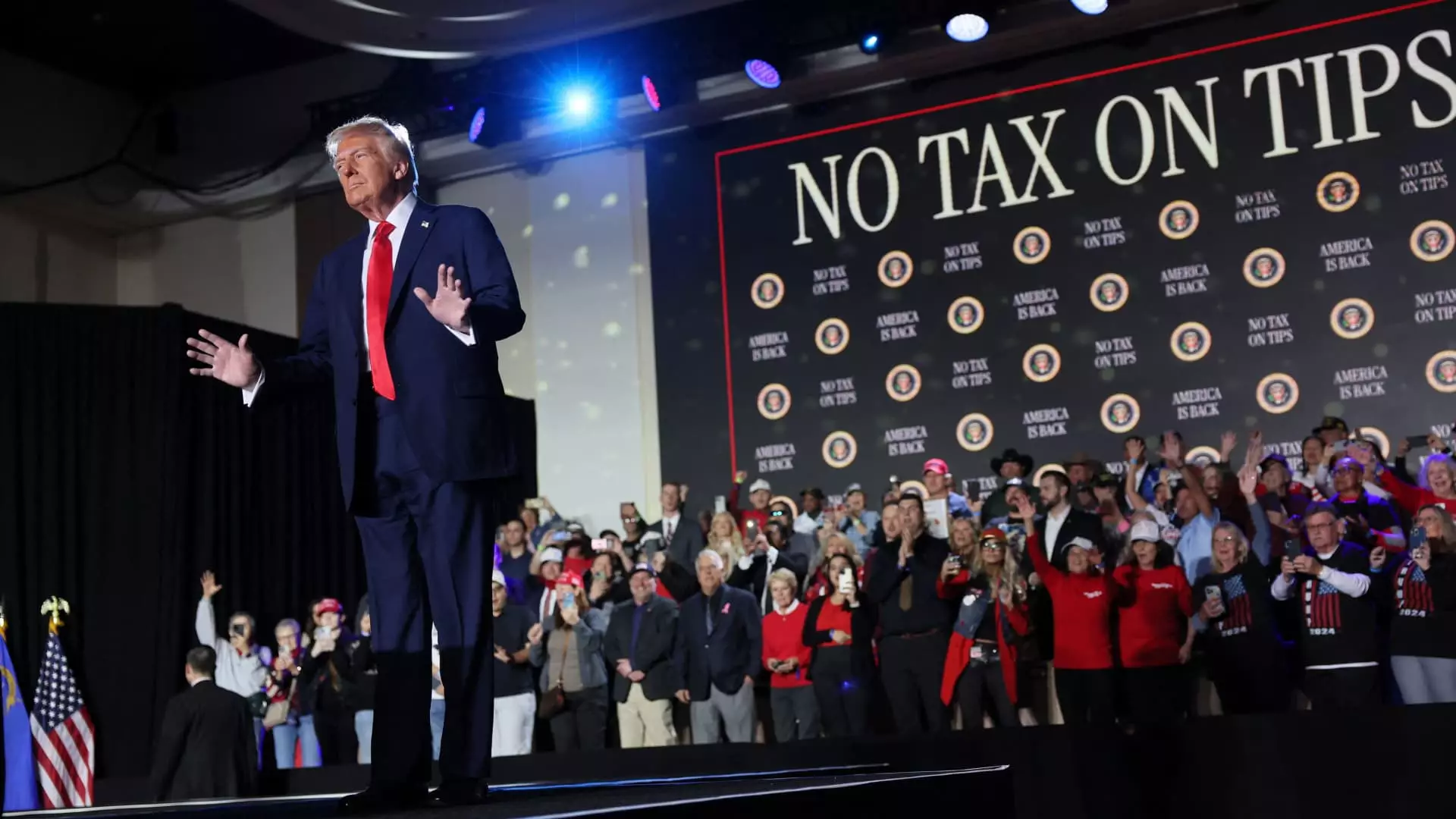The recent unanimous passage of the No Tax on Tips Act by the Senate might appear as an unprecedented win for the working class, yet a deeper analysis reveals this initiative’s superficial charm and questionable efficacy. Initially brought to the spotlight by President Donald Trump’s 2024 campaign, the proposed legislation suggests a federal income tax deduction for cash tips up to $25,000. On the surface, this measure seems like a meaningful gesture aimed at benefiting tipped workers, but it brings forth a plethora of questions regarding its actual impact on the economic landscape and whether it genuinely addresses the needs of the workforce.
Understanding the Limitations and Inequities
The bill establishes strict eligibility criteria, including a $160,000 earnings cap for 2025—indexed for inflation—which, while designed to include typical workers, effectively narrows its benefits to those who already have a reasonable income. The reality is that a significant proportion of tipped employees are part-time workers who might already fall below the taxable threshold due to their limited earnings. In essence, the concept of tax relief for low-income workers becomes muddied when they are categorized as part of an exclusive segment of the workforce that doesn’t even benefit from federal income tax obligations.
The fundamental inequity lies in the different treatment of income. Tipped workers, such as those in the restaurant or hospitality industries, would potentially enjoy a tax break on their additional earnings ranging from shareable tips to customer gratuities. Meanwhile, their non-tipped counterparts face full taxation on comparable earnings. Why should a waitress, earning $35,000—including $10,000 in tips—pay less in taxes than a retail cashier earning a similar wage? Such a disparity raises ethical and economic concerns, showcasing a flawed policy that reinforces rather than alleviates income inequality.
The Economic Disruption: Misclassification and Behavioral Shifts
Another troubling aspect of the No Tax on Tips Act is the potential for economic disruption it brings. By incentivizing a no-tax policy on tips, there’s a tangible risk of manipulating income classifications—where employers might push more compensation under the guise of “tips” to circumvent tax obligations entirely. This proposed shift could misrepresent the nature of compensation, distorting labor dynamics and frustrating fair wage practices. Tipping is meant to express gratitude for quality service, not to become a primary driver for one’s livelihood.
Moreover, creating a tipping culture in non-tipped occupations is highly plausible. As a result, this initiative might inadvertently lead to further complications, where jobs that were never intended to rely on gratuities begin to adopt such models, thus diluting the integrity of tipping itself. This could consequently degrade service standards as workers become reliant on unpredictable incomes rather than negotiating adequate base salaries.
The Politics Behind the Curtain
It’s crucial to identify the underlying motivations for the No Tax on Tips Act’s swift advancement through the legislative channels. While Senator Ted Cruz advocates passionately for this bill, framing it as a pathway to financial relief for hardworking Americans, one could argue that the priorities are skewed. Such legislation might serve the interest of a vocal minority of tipped workers while glossing over the more significant economic issues faced by broader swathes of the workforce.
Additionally, bipartisan support might spur enthusiasm, but it’s essential to scrutinize whether this collaboration is genuinely directed towards social equity or simply a bid to showcase political achievements ahead of the upcoming elections. The balance of political incentives and the necessity for genuine reforms often creates initiatives that favor optics over substance.
A Call for Comprehensive Labor Reform
The discussion on taxes concerning tips should serve as a springboard for broader conversations about labor reform that focuses on equitable compensation for all workers, regardless of their industry. Rather than championing a fragmented approach designed for select groups, lawmakers should prioritize holistic policies that address wage stagnation, worker businesses rights, and cost-of-living adjustments.
In wrapping the concept of tips in an appealing legislative package, the No Tax on Tips Act risks silencing the greater conversation around wage structures. The working class deserves substantive reforms—not mere Band-Aids that superficially mask deeper systemic problems. It is vital that we re-evaluate the focus of our policies to ensure they empower the majority rather than perpetuate an exclusive narrative that undervalues hard work across all sectors of the economy.

